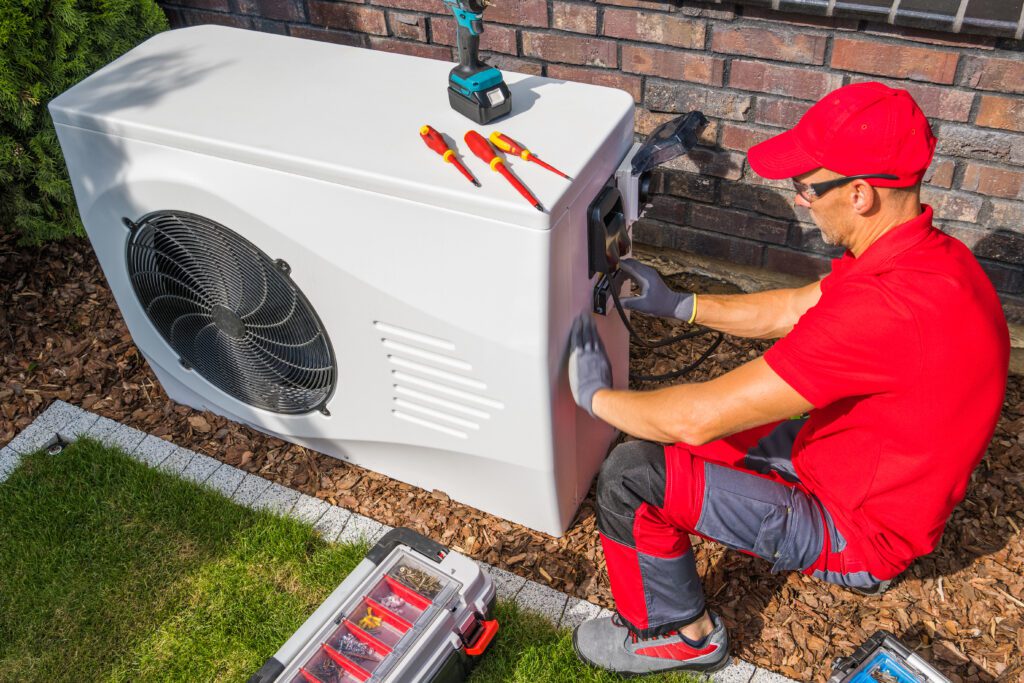For residents of Martinsburg, West Virginia, the installation of a heat pump can significantly impact home comfort, energy efficiency, and overall utility costs. Understanding the ins and outs of heat pump installation is crucial to make informed decisions that will benefit you and your family in the long run. This article will provide detailed information on the entire process, from the basics to post-installation care.
Understanding the Basics of Heat Pump Installation
Before diving into the installation process, it’s essential to grasp what heat pumps are and how they function. A solid understanding will help you appreciate their advantages and know what to expect during installation.
What is a Heat Pump and How Does it Work?
A heat pump is an energy-efficient system used for heating and cooling spaces. Unlike traditional HVAC systems, which generate heat or cool air, heat pumps transfer heat from one place to another. In winter, heat pumps absorb heat from the outside air and transfer it indoors. In summer, they reverse this process, removing heat from the inside and expelling it outdoors.
This two-way operation makes heat pumps highly versatile and energy-efficient, utilizing electricity to move heat rather than generating it through combustion. This technology can lead to significant savings on energy bills, making heat pumps an attractive option for homeowners.
Moreover, heat pumps can be categorized into different types, including air-source, ground-source (or geothermal), and water-source heat pumps. Each type has its unique installation requirements and efficiency levels, allowing homeowners to choose a system that best fits their specific needs and environmental conditions. For example, geothermal heat pumps, while typically more expensive to install, can provide exceptional efficiency and savings in the long run, especially in regions with extreme temperature fluctuations.
Why Heat Pumps are Beneficial for Martinsburg Residents
Martinsburg residents can enjoy numerous benefits from installing a heat pump. First and foremost, heat pumps are known for their energy efficiency, particularly in moderate climates. This efficiency translates into lower energy costs over time.
- Environmental Impact: Heat pumps produce fewer greenhouse gases compared to traditional heating systems, making them a more environmentally-friendly option.
- Space-Saving: Heat pumps can be installed either inside or outside your home, freeing up valuable indoor space.
- Versatility: They can provide both heating and cooling, effectively replacing both your furnace and air conditioner.
For those looking to improve their home’s comfort and reduce their carbon footprint, heat pumps present a viable solution. Additionally, the installation of a heat pump can enhance the overall value of a property, as energy-efficient systems are increasingly sought after in the real estate market. Homebuyers are often willing to pay a premium for homes equipped with modern, efficient heating and cooling solutions, making heat pumps not just a functional upgrade but also a smart investment.
Furthermore, with the growing emphasis on sustainable living and energy conservation, local and federal incentives may be available to offset the initial costs of installation. Programs aimed at promoting energy efficiency can provide rebates or tax credits, making it even more financially appealing for Martinsburg residents to consider heat pump systems. This not only encourages homeowners to make eco-friendly choices but also contributes to a broader community effort towards reducing energy consumption and environmental impact.
Pre-Installation Considerations
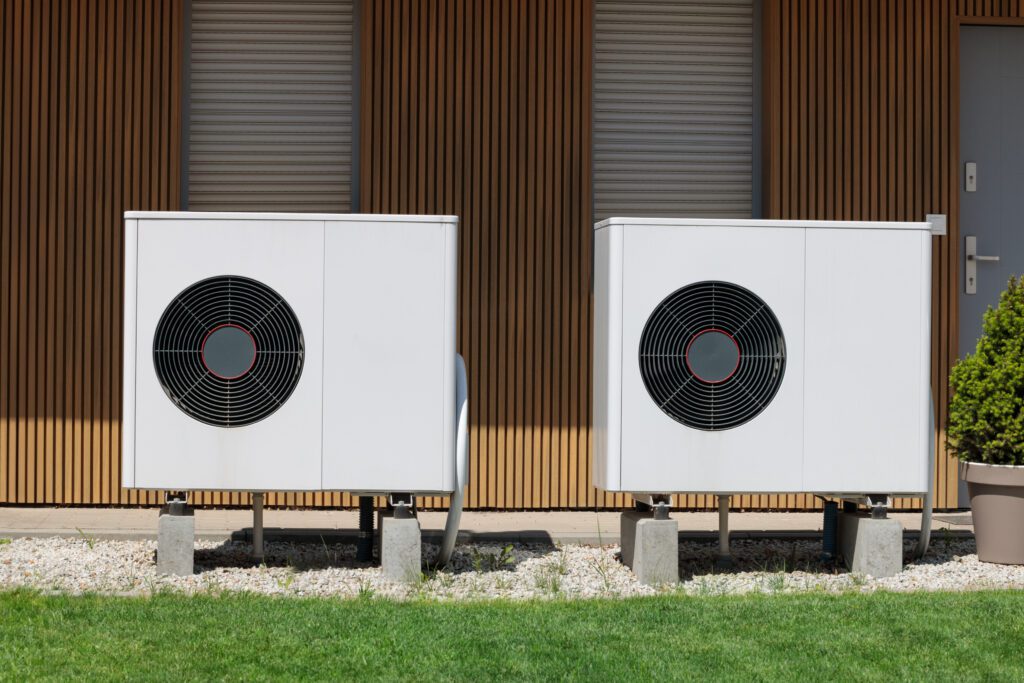
Before you proceed with the installation of a heat pump, several factors need careful consideration. Preparing adequately can ensure that you select the right system for your home.
Evaluating Your Home’s Heating and Cooling Needs
Every home has unique heating and cooling requirements based on size, insulation, orientation, and even the number of occupants. Conducting a thorough evaluation of your home can help determine the appropriate size and type of heat pump for optimal performance.
Some factors to consider include:
- Home Size: Larger homes might require multi-zone systems.
- Insulation Quality: Well-insulated homes retain heat better, which may mean you can use a smaller heat pump.
- Climate Considerations: Martinsburg experiences seasonal temperature variations, which may influence your system choice.
Additionally, it’s important to assess the layout of your home. Homes with open floor plans may distribute heat more evenly, while those with many rooms or levels might require additional considerations for airflow and temperature regulation. Understanding how your home’s design impacts heating and cooling efficiency can lead to better comfort and energy savings.
Choosing the Right Heat Pump for Your Home
The selection of the right heat pump is vital for ensuring efficient and effective operation. There are two primary types of heat pumps to consider:
- Air Source Heat Pumps: These are the most common type and work efficiently in moderate climates.
- Ground Source Heat Pumps: Also known as geothermal heat pumps, they are more efficient but come with higher upfront costs and installation requirements.
When deciding between these options, consider the long-term energy savings and potential rebates or incentives available for energy-efficient systems in your area. Air source heat pumps may be more affordable initially, but ground source heat pumps can offer substantial savings over time due to their higher efficiency rates. Furthermore, the installation process for ground source systems can be more invasive, requiring excavation and careful planning of underground loops.
Consulting with a professional can provide valuable insights and recommendations tailored to your specific needs and local conditions in Martinsburg. They can also help you navigate the various models and brands available, ensuring you choose a system that not only fits your budget but also aligns with your energy efficiency goals.
The Installation Process
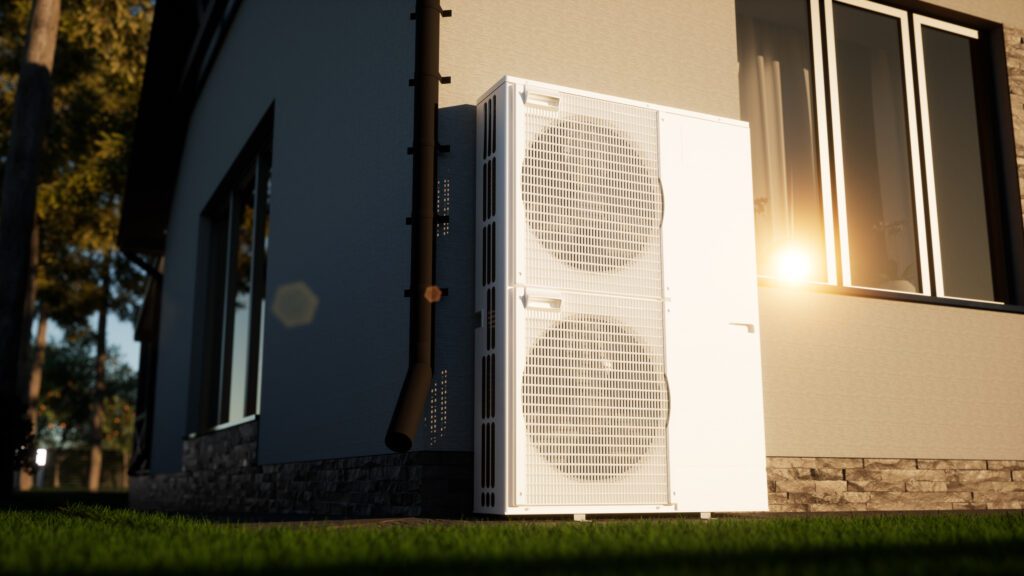
Once you’ve selected your heat pump and are ready to proceed, understanding the installation process is crucial. Proper installation is key to the longevity and performance of your heat pump.
Preparing Your Home for Installation
Preparing your home for heat pump installation involves clearing the area around where the unit will be installed. It’s important to ensure that the installation site is accessible, as this will facilitate the swift execution of the work by the installation team.
Make arrangements for any pets or young children, and inform your neighbors about the installation schedule to minimize disturbances. Additionally, it’s wise to conduct a thorough inspection of the installation area, checking for any potential obstructions such as overhanging branches or nearby structures that could interfere with the unit’s operation. This proactive approach not only helps in ensuring a smooth installation but also contributes to the efficiency of the heat pump in the long run.
Key Steps in the Heat Pump Installation Process
The installation process typically involves several key steps:
- Assessment: The installer will assess your home and discuss specifics regarding the heat pump model you’ve selected.
- Installation: The technician will install the indoor and outdoor units, requiring drilling and possibly some modifications to your home.
- Connection: Electrical and refrigerant connections between the indoor and outdoor units will be established.
- Testing: After installation, the technician will test the system to ensure it’s operating correctly.
Following these steps carefully can guarantee that the heat pump is set up for optimal performance. Moreover, it’s essential to understand that the installation process may vary slightly depending on the specific model of the heat pump and the layout of your home. For example, some systems may require additional components, such as a backup heating source or advanced thermostat controls, which can enhance energy efficiency and comfort levels.
Furthermore, during the testing phase, the technician will not only check for proper operation but will also provide you with valuable insights on how to operate your new system effectively. They may offer advice on optimal temperature settings, maintenance tips, and how to troubleshoot common issues. This knowledge will empower you to maximize the benefits of your heat pump, ensuring that your investment pays off in both comfort and energy savings.
Post-Installation Tips
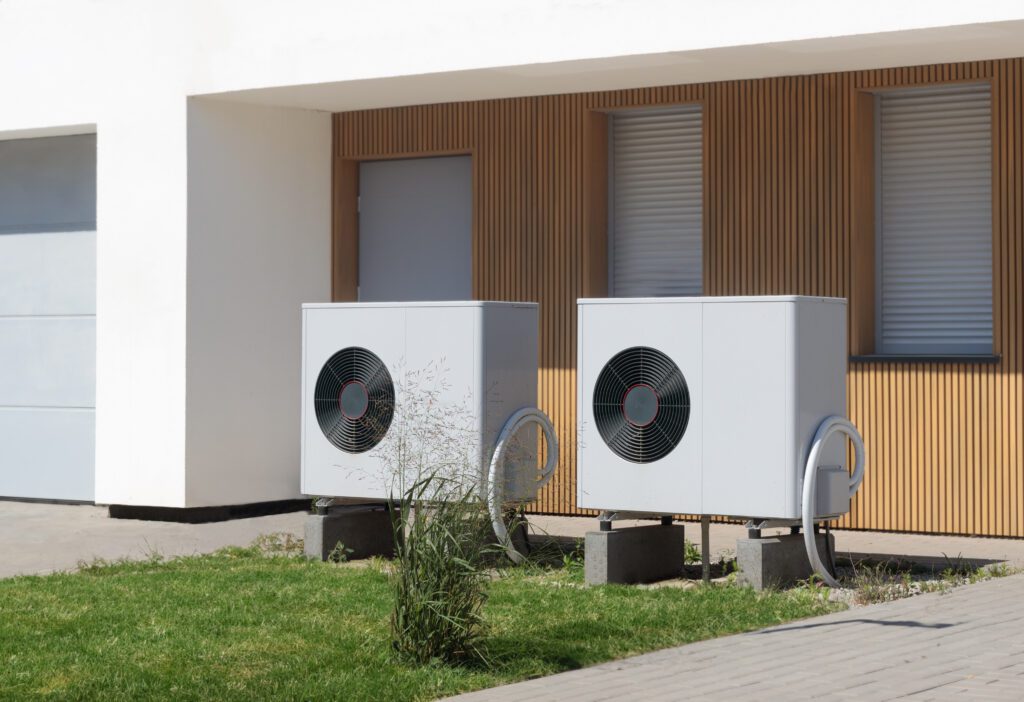
Once your heat pump is installed, your responsibilities are not over. Ensuring its longevity and efficiency requires ongoing care and maintenance.
Maintaining Your Heat Pump for Optimal Performance
Regular maintenance is key to keeping your heat pump running efficiently. Here are some tips:
- Change or clean filters regularly to maintain airflow.
- Schedule professional inspections at least once a year to identify potential issues early.
- Keep the outdoor unit clear of debris and obstructions to ensure proper airflow.
Adhering to these practices can enhance the lifespan and efficiency of your system. Additionally, it’s wise to monitor the refrigerant levels, as low refrigerant can lead to reduced efficiency and potential damage. Consider investing in a programmable thermostat that can optimize your heat pump’s operation based on your schedule, ensuring that you’re not wasting energy when you’re not home. By taking these proactive steps, you can significantly improve the performance and reliability of your heat pump.
Troubleshooting Common Heat Pump Issues
Even with proper maintenance, issues may still arise. Familiarize yourself with some common problems:
- No Heating or Cooling: Check thermostat settings and ensure that your unit is receiving power.
- Strange Noises: Sounds like banging or hissing may indicate loose or damaged parts.
- Increased Energy Bills: If your bills rise unexpectedly, it may suggest that your heat pump is not operating efficiently.
Understanding these common issues will help you troubleshoot effectively and know when to call a professional. Furthermore, it’s beneficial to keep a log of any irregularities or performance changes you notice. This record can be invaluable during service calls, as it provides technicians with a clearer picture of the issues at hand. Regularly checking the condensate drain for clogs can also prevent water damage and ensure that your heat pump operates smoothly. By being vigilant and informed, you can maintain a comfortable environment in your home while extending the life of your heat pump.
Hiring a Professional Installer in Martinsburg, WV
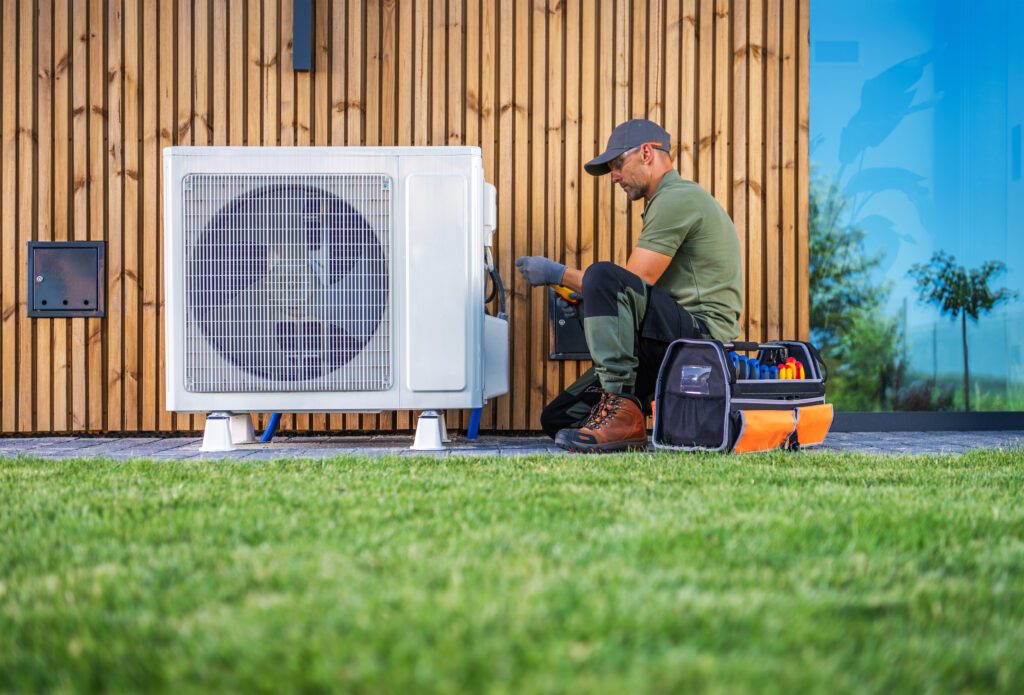
Choosing the right professional for your heat pump installation can make or break your experience. A qualified installer will ensure that the system is properly set up and that you are equipped with the knowledge to maintain it. This is crucial not only for the longevity of your heat pump but also for maximizing its efficiency and performance throughout its lifespan.
What to Look for in a Heat Pump Installer
When searching for a heat pump installer, consider the following criteria:
- Experience and Certifications: Look for installers with a proven track record and appropriate certifications.
- References and Reviews: Check online reviews or seek referrals from friends and family.
- Warranty and Service Agreements: Make sure they offer a warranty on both the installation and the equipment.
Taking the time to find a reputable installer can prevent headaches down the line. Additionally, inquire about their familiarity with local building codes and regulations, as this knowledge can significantly impact the installation process. A seasoned installer will not only be aware of the necessary permits but will also ensure that your system complies with all safety standards, providing you with peace of mind.
Understanding the Cost of Professional Installation
Costs can vary widely based on various factors, including the type of heat pump, complexity of the installation, and local labor rates. On average, total installation costs can range from $3,000 to $8,000.
It’s advisable to obtain multiple quotes before making a decision. Additionally, discussing financing options or potential rebates can help alleviate upfront costs, ensuring that you can invest in an efficient heating system without draining your budget. Some local utility companies may offer incentives for energy-efficient installations, so it’s worth checking with them to see if you qualify for any financial assistance.
Moreover, consider the long-term savings associated with a heat pump installation. While the initial investment may seem significant, the energy efficiency of heat pumps can lead to substantial savings on your utility bills over time. This is particularly relevant in Martinsburg, where seasonal temperature fluctuations can put a strain on traditional heating systems. By investing in a heat pump, you are not only enhancing your home’s comfort but also contributing to a more sustainable environment. Understanding these factors will help you make a more informed decision regarding your installation.

